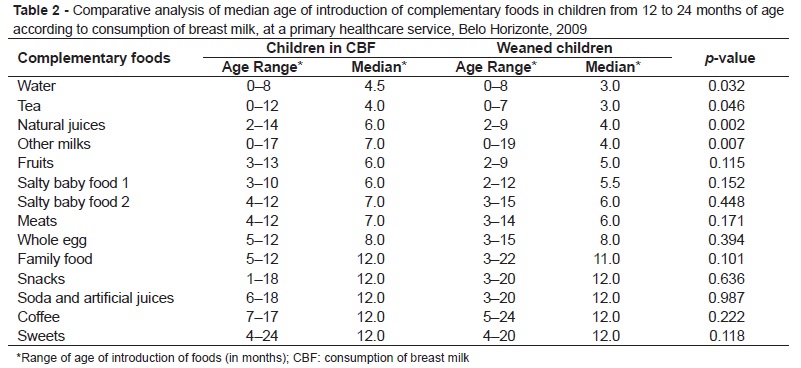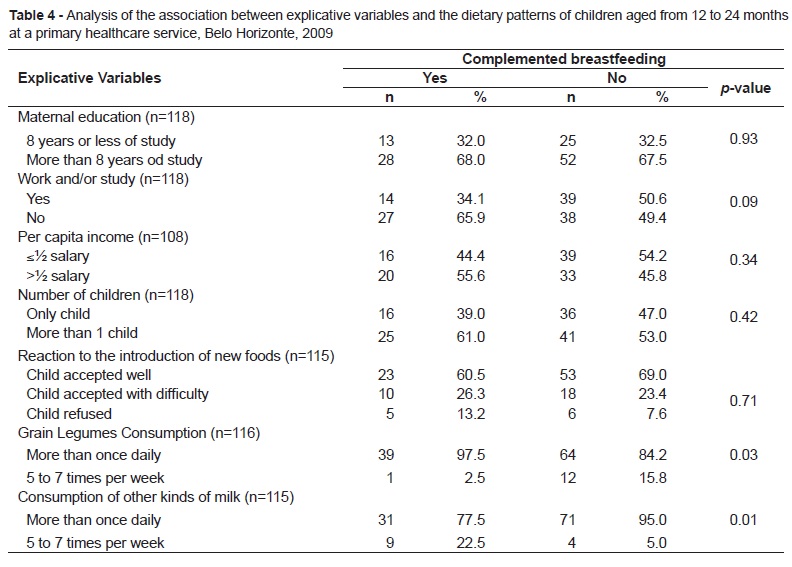OBJECTIVE: To study the eating habits of children in their second year of life, comparing these habits in children that received complementary breastfed to the ones who weaned before 12 months of life. METHODS: Cross-sectional study involving children aged 12 to 24 months in a primary health care service in Belo Horizonte, in the state of Minas Gerais, Southeast Brazil. Mothers were interviewed about the feeding practices of their children. The eating habits of complementary breastfed children were compared to those who weaned before 12 months of life by the chi-square, Fisher, Student's t, and Kruskal-Wallis tests, with a significance level of 5%. RESULTS: 118 children were included with a mean age of 16.8±4.0 months. About 35% of them were still breastfed and only 15.3% kept exclusive breastfeeding for six months. In breastfed children the median duration of exclusive breastfeeding was four months and, for the weaned ones, two months (p=0.13). In both groups there was early introduction of complementary food, high intake of processed food, high daily consumption of oils and fats (90.7%), and low consumption of fruits (38.1%). CONCLUSIONS: The results point out the existence of inadequate feeding practices in infants regardless of the recommended intake of breast milk, therefore indicating the need for improvement and integration of actions to promote breastfeeding and healthy diets in primary attention services.
breastfeeding; supplementary feeding; weaning; food habits; infant nutrition




